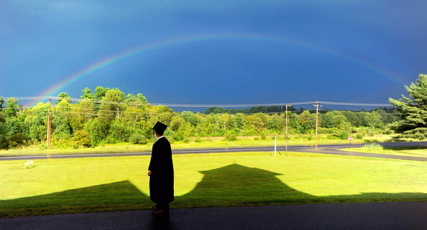A few years ago, would-be charter school administrators around the state were fighting to navigate a thicket of state laws and regulations for the right to open their doors.
Now their biggest challenge might be meeting the public demand, with some turning to lotteries to select new students from pools of eager applicants.
Administrators at two of the state’s first charter schools — the Maine Academy of Natural Sciences, in Fairfield, and the Cornville Regional Elementary School — say they are trying to increase capacity without undermining the tight-knit cultures that have emerged in their classrooms.
For the first two years of its existence, the academy had more open seats than students. In 2012, there were 47 applicants for 52 slots; while in 2013, the school increased its capacity to 66 and was left with just one vacant seat.
For next year’s class, the school will increase its capacity again, to 72 students, the maximum amount allowed under state fire codes.
Despite the expansion, demand has grown far faster than the supply. By March 15, the application deadline, more than 50 students were vying for about 25 open slots, according to administrators.
Returning students and their siblings are the only ones with guaranteed placement. The rest of the hopeful student applicants, who come from all over the state, are relying on luck to get in.
“I hate turning people away,” said Lisa Sandy, the school’s admissions director.
Sandy said the school hasn’t advertised the slots, so the applicants have all come from word of mouth and face-to-face interactions.
Because state law prohibits the school from giving preferential treatment to applicants, on Tuesday a local farmer with no ties to the school will pull names from a hand-cranked bingo machine in the school’s application lottery.
The increase in student interest is good, academy President Glenn Cummings said, but it brings its own challenges.
“It’s a pretty good barometer,” he said. “It gives us a nice validation.”
Cummings said the school is considering building more capacity, but he wants to proceed cautiously.
The school employs now six teachers and a handful of educators funded by the national service organization AmeriCorps.
“One of our hallmarks is that our faculty get to know the kids well,” he said. “The teacher-student relationships are very positive. If we get too high with enrollment, it could undermine that relationship.”
Cummings said the school’s teaching philosophy, much of which is centered on hands-on learning in an agricultural setting, has a lot of appeal for the target population of students who did not thrive in a traditional academic classroom.
“They’re learning the same things but learning it by working the fields, being outdoors, driving a tractor,” he said. “This is a very, very attractive place to land.”
The school is on the grounds of Good Will-Hinckley, a residential school for at-risk children founded in 1889, which shut down its core operations in 2009 because of financial problems. Before reopening as the academy in 2011, it sold off much of its original 2,400-acre campus, including its historic high school.
Cummings said administrators are considering building new structures on the academy’s campus to meet anticipated future demand.
When the students who win the lottery are notified, they must confirm their commitment to the school within two weeks, or they forfeit the slot to another student.
The same two-week deadline is in play at Cornville Regional Elementary School, which also has had significant growth since it admitted its first class of 60 students in 2012.
Next year, the school will be prepared to teach 105 students; but it, too, was forced to turn away some hopefuls after a March 11, according to Justin Belanger, the school’s executive director.
Belanger said that once returning students and siblings were accounted for, only eight seats were open for a pool of 40 student applicants. The school also held a lottery for its openings.
Belanger said five of about 60 students are not returning, which he said demonstrates the confidence families have in the school.
“Overall, parents seem to be very happy,” he said, citing satisfaction surveys the school administers to families twice a year.
Like the academy in Fairfield, Belanger said the Cornville school is grappling with space problems.
The school originally had a plan to increase its population to 120, its maximum under the state charter, this year; but Belanger said the board decided to slow down.
“To double in three years is just a little bit too much, too fast, and we wanted to make sure we could provide the same quality services,” he said.
To maximize its classroom space, the school bought a double-wide trailer to house its library and arts rooms next year, which will free more classroom space in the school’s main building, Belanger said.
Despite the growing pains, Belanger said it’s far better than trying to run a school that no one wants to attend.
“In a lot of ways, it’s a good problem to have,” he said.
Matt Hongoltz-Hetling — 861-9287 mhhetling@centralmaine.com Twitter: @hh_matt
Send questions/comments to the editors.



Success. Please wait for the page to reload. If the page does not reload within 5 seconds, please refresh the page.
Enter your email and password to access comments.
Hi, to comment on stories you must . This profile is in addition to your subscription and website login.
Already have a commenting profile? .
Invalid username/password.
Please check your email to confirm and complete your registration.
Only subscribers are eligible to post comments. Please subscribe or login first for digital access. Here’s why.
Use the form below to reset your password. When you've submitted your account email, we will send an email with a reset code.